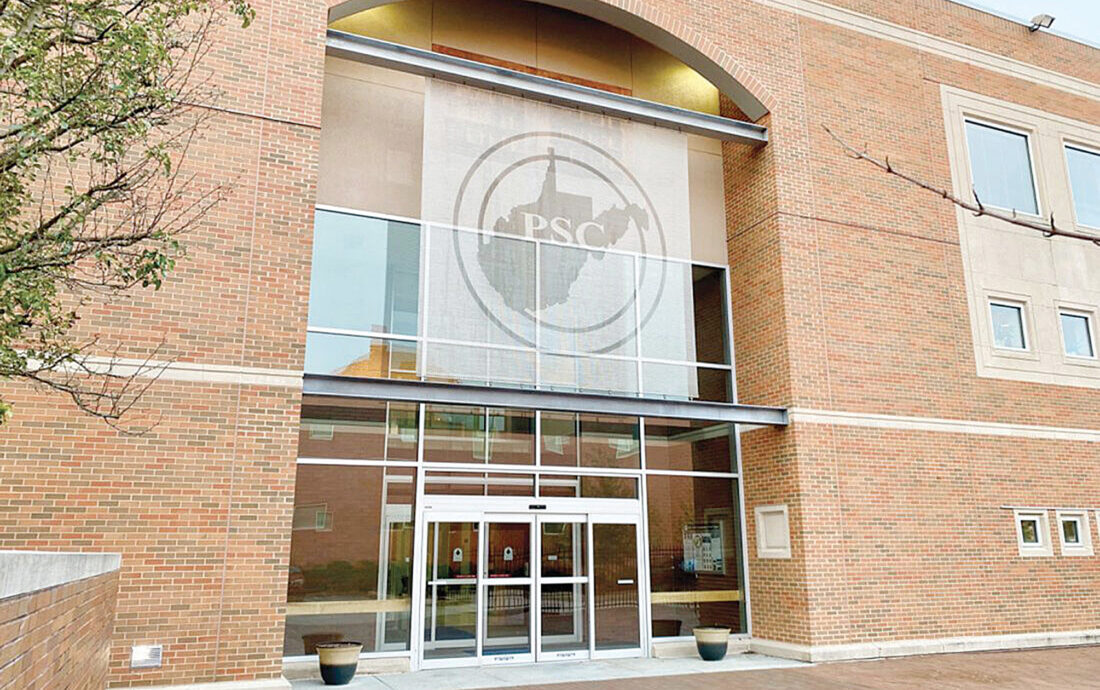Memorandum could have implications for broadband

File photo West Virginia Public Service Commission staff are recommending that the full PSC side with Comcast in a pole attachment disagreement with Appalachian Power
CHARLESTON — A new memorandum released last week by staff of the West Virginia Public Service Commission could settle an issue at the heart of disagreements between electric utilities and internet service providers over who is responsible for pole replacements.
In an initial and final memorandum published Friday afternoon, PSC staff sided with Comcast Cable Communications in a pole attachment complaint filed May 22 against Appalachian Power, a subsidiary of Columbus-based American Electric Power.
According to the complaint, Comcast alleged APCo was using a “pre-existing violation” policy to place the cost of repairs or replacement of utility poles on internet service providers, instead of the electric utilities that own the poles, when issues are discovered with the pole or prior attachments to the pole during make-ready, the process of modifying utility poles for new ISP equipment.
“Specifically, in instances in which an attacher seeks a license to attach to an AEP-owned pole determined to have a pre-existing violation, AEP’s Violation Policy requires the new attacher to either pay for the remediation of the third-party pre-existing violation as part of the new attacher’s make-ready or wait (30) days to see if the third-party attacher will pay for or remedy the pre-existing violation,” according to the memorandum. “In Staff’s view, AEP’s Violation Policy is neither reasonable nor permitted under applicable pole attachment regulations.”
According to the memorandum, current laws prohibit pole owners from denying access to utility poles to new attachers, such as ISPs, due to safety concerns stemming from pre-existing code violations caused by other attachers.
“If a safety concern exists because of a violation that predates the new attachment request, the existence of that violation cannot be used as a blanket justification to refuse or delay the new attacher’s request for a license,” the PSC staff wrote. “Instead, the pole owner is obligated to resolve the safety issue as part of the make-ready process, and more importantly, the pole owner cannot hold the new attacher responsible for addressing violations it did not cause.”
PSC staff also pointed to a 2023 order issued by the Federal Communications Commission that determined pole owners cannot charge new attachers for replacements of utility poles due to pre-existing conditions on the pole, if the pole is already scheduled for replacement or if the pole is non-compliant with safety standards.
“The FCC effectively removed any doubt that pole owners, and not attachers, are responsible for pole replacement costs where a pole has been identified for replacement for any reason other (than) lack of capacity to accommodate the new attachment,” PSC staff wrote. “In short, the presence of a pre-existing violation does not shift the responsibility for correcting it onto the new attacher, nor does it give the pole owner the ability to delay make-ready timelines while attempting to assign or recover the cost of that correction from the third party attacher.”
The issue of who is responsible for pole repairs and replacements is one of the several at the heart of disagreements between ISPs and electric utilities. Bridgeport-based Citynet is having a similar dispute with Akron-based FirstEnergy subsidiaries Mon Power and Potomac Edison over grandfathering.
Citynet is seeking a similar ruling from the PSC in a complaint it has against FirstEnergy. According to Citynet, the company has already spent approximately $8 million in the FirstEnergy service area on make-ready, with $5 million of that amount spent to correct code violations the company says FirstEnergy should have paid to correct. In a June PSC filing, attorneys for Potomac Edison and Mon Power argued it would be impossible for it to fix every pole every time there are changes to the National Electrical Safety Code.
There are several broadband expansion projects going on across the state using millions of dollars in federal grants. These include $136 million in funds through the federal American Rescue Plan Act. Projects funded through ARPA’s State and Local Fiscal Recovery Fund and the Capital Projects Fund have until Dec. 31, 2026, to finish the projects before any remaining funding is clawed back by the U.S. Treasury Department.
Gov. Patrick Morrisey announced last week that the Office of Broadband within the state Department of Commerce had published updated program procedures for the federal Broadband Equity, Access, and Deployment program. West Virginia was awarded $1.2 billion through the BEAD program in June 2023.
West Virginia’s BEAD final proposal will be submitted to the U.S. Department of Commerce’s National Telecommunications and Information Administration on or before Wednesday, Sept. 3. Applicants must deploy the planned broadband network and begin providing service to each customer that desires service within the area no later than four years after the date on which the applicant receives a BEAD award.
The PSC issued an order on June 27 establishing a Pole Attachment Working Group to address various issues, including make-ready timelines, cost allocation and rule updates. The Commission mandated the creation of a pole inspection database to aid broadband providers, contingent on funding, and required pole owners to file annual reports on attachment requests. The order also addresses specific rule modifications, such as allowing temporary pole attachments during pole replacements.



